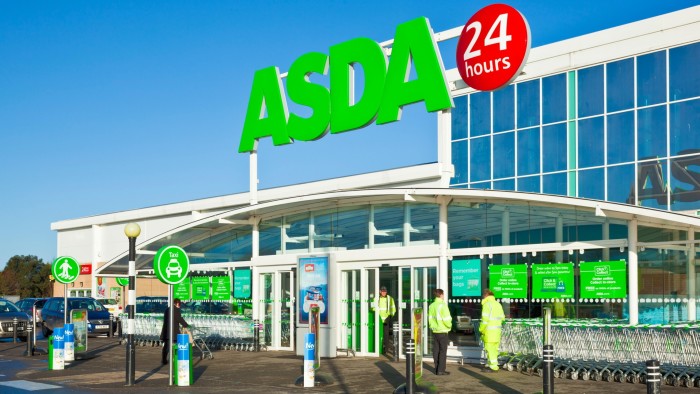
Unlock the Editor’s Digest for free
Roula Khalaf, Editor of the FT, selects her favourite stories in this weekly newsletter.
More than 100 large stores run by the UK’s top supermarket chains are at risk of closure because of government plans to raise business rates, which would drive up costs for a sector already bearing the brunt of increased employment taxes.
Roughly 50 of Sainsbury’s 600 supermarkets will become unprofitable as a result of the higher property charges, according to people in the industry. For Tesco, the UK’s largest private sector employer, the changes would tip tens of stores into the red, according to a senior figure at the company.
Ministers are planning to increase business rates on properties with a rateable value of more than £500,000 — the top 1 per cent of retail stores.
The intention is that this will fund the government’s plan to change a temporary discount for smaller retail and hospitality businesses, those trading from premises with a rateable value of less than £500,000, into a permanent one.
Sainsbury’s and Tesco, which generated net profits of £420mn and £1.2bn respectively last year, may be better able to weather the impact than their more heavily indebted rivals, Asda and Morrisons.
The changes will threaten the viability of 30 Morrisons supermarkets, out of a total of almost 500, although one insider said this would not necessarily mean those outlets closed as a result. Meanwhile, almost 90 per cent of Asda’s roughly 600 supermarkets would be affected by the business rate increases, said a person familiar with the company.
Supermarket executives have also been irked that Labour’s plans to increase rates will not impact Aldi and Lidl, which typically operate smaller, less valuable stores.
Property experts at Colliers estimate that less than 10 per cent of Lidl’s stores will be impacted by the proposed changes.
Tesco, Sainsbury’s, Asda and Morrisons all declined to comment.
Last year, Morrisons chief executive Rami Baitiéh, urged the government to stagger the “avalanche” of costs bearing down on retailers.
The sector, which employs 2.8mn people, has been hit disproportionately by increases in employers’ national insurance and the minimum wage. The new business rates levy for larger stores, which employ one in three retail workers, will be announced at the autumn Budget.
Business rates have long been a bugbear for bricks-and-mortar retailers, who complain that the property-based tax unfairly penalises them vis-à-vis their online counterparts.
The government, which has pledged to fundamentally reform the business rates system, contends that its proposals will increase the business rates take from the majority of the distribution centres used by “online giants” such as Amazon.
Industry lobby groups argue the government’s focus on large stores will penalise supermarkets and department stores, which can both help drive footfall to the high street.
Ken Murphy, chief executive of Tesco, said last month that “the reforms as proposed do not meet the original intention to rebalance the burden of business rates to be fairer and support town centres”.
“We are creating a fairer business rates system to protect the high street, support investment and level the playing field,” the Treasury said.
“We intend to introduce permanently lower tax rates for retail, hospitality, and leisure properties from next year. Unlike the current relief for these properties, there will be no cash cap on the new lower tax rates.”



